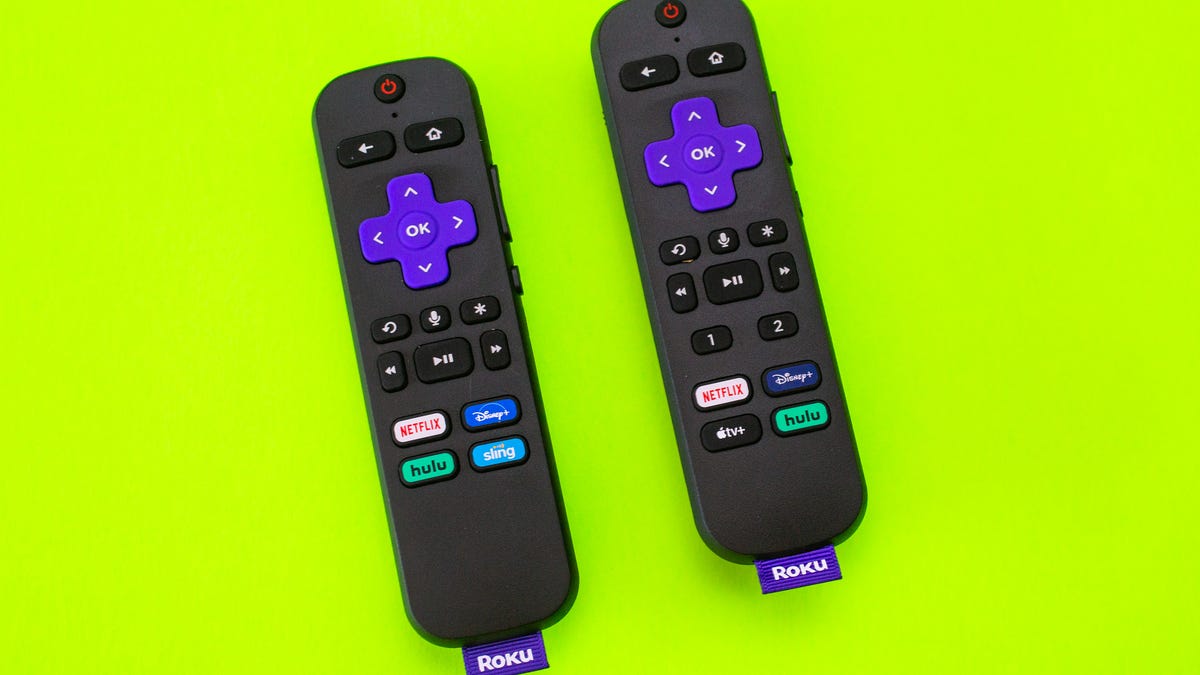Google: New Rokus won't stream YouTube, YouTube TV after Dec. 9 if no deal
YouTube and Roku's standoff has dragged on for months. Now YouTube says both its apps will be cut off from new Roku devices if they don't reach a pact.

Google's YouTube ratcheted up its dispute with Roku Thursday soon after Roku posted an update for its customers on the state of their talks, which have been dragging on since late April. If the two sides fail to reach a deal by Dec. 9, both the main YouTube app and the smaller service YouTube TV will be blocked from any new Roku devices, Google said. (Existing users on existing Roku devices will still be able to access both apps.)
When reached for comment about Google's plan, Roku referred to its original blog post.
Threatening to block YouTube's main app on new Roku devices significantly escalates the faceoff with Roku. YouTube is the world's biggest source of online video, with more than 2 billion monthly visitors. By comparison, YouTube TV -- a subscription service that streams live television channels and is typically used as an alternative to cable or satellite for cord-cutters -- has roughly 4 million subscribers, according to analysts' estimates. And YouTube's main app has been on a campaign over the last two years to increase the time people spend streaming YouTube on connected TVs.
Roku is one of the biggest makers of connected-TV gadgets. But Google itself is a Roku hardware rival: Its Google TV, Chromecast and Android TV streaming devices compete with Roku, making Google both a partner and competitor in different facets of its business.
Google had previously pulled the the main YouTube app into the Roku fight before. In May, Google tweaked the main YouTube app so it served dual purposes -- its traditional job of offering up YouTube's massive library of online video free for anyone to watch with ads, as well as a new side-door entrance to YouTube TV's live channels and other features for paying subscribers. The move was a response to Roku removing the dedicated YouTube TV app from its channel store for any new users who wanted to download it. (People who had already downloaded the YouTube TV app before May were able to keep using it without disruption.)
But if the two sides fail to reach a deal and Google makes good on its threat, anyone who wants to stream either YouTube or YouTube TV on a Roku must download whatever YouTube apps they can before Dec. 9.
Carriage disputes between programmers and distributors are nothing new -- they're a routine annoyance for customers of traditional cable and satellite TV. Up until last year, the absence of these kinds of service "blackouts" was one of the ways streaming set itself apart from the aggravations of television's past.
But in the last year, they've cropped up with the launches of many big, new streaming services, such as both HBO Max and NBCUniversal's Peacock failing to launch with support on Roku. The tensions come as streaming has grown more popular than ever during the coronavirus pandemic, amplifying a long trend of people watching more video over the internet. Companies like Roku and Google all want command of the data, money, programming and discovery tools at the heart of your streaming activity to entrench themselves in positions of power for the next era of television.
Earlier Thursday, Roku's customer update largely reiterated points the company had made before. It noted that Roku wasn't seeking any change to the financial terms of its deal with Google for YouTube and YouTube TV, but that it couldn't agree to other terms: Google wants Roku to preference YouTube over other content providers in search results on its devices and set up search, voice and data features that Google doesn't insist on with other streaming platforms, Roku said.
Roku also disclosed that it doesn't make any money off YouTube's main app, "whereas Google makes hundreds of millions of dollars from the YouTube app on Roku," according to its post.
Google's statement in response said that its partnership for all new Roku devices will end on Dec.9 "since we haven't been able to continue our conversations in good faith."
"Since our negotiations with Roku earlier this year, we've continued to work with them to find a resolution that benefits our mutual users. Roku has once again chosen to make unproductive and baseless claims rather than try to work constructively with us," Google said in its statement.
More streaming advice
- 10 Ways to Save Money on Streaming
- How to Cut the Cable TV Cord in 2023
- See More at Streaming TV Insider

